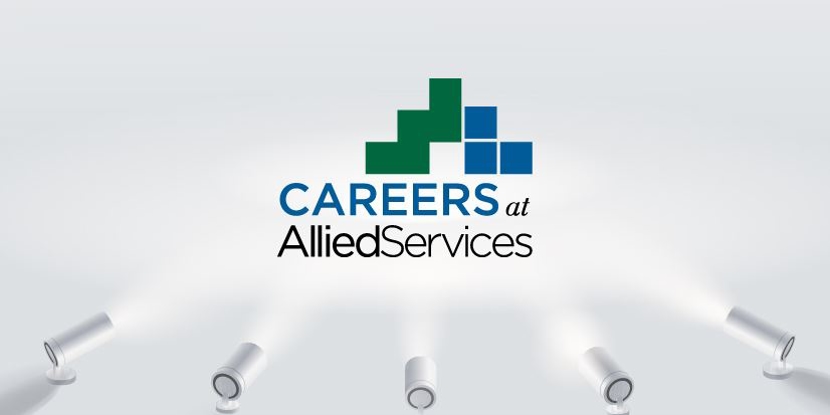Sports Medicine: Getting you back in the game
- Category: News, Sports Medicine
- Posted On:
- Written By: Allied Services Integrated Health

Illness or injury that slows you down or stops you in your tracks is frustrating, no matter your activity level. If you're a student-athlete, life-long runner, outdoor enthusiast, recreational swimmer, or weekend warrior, an injury or illness can mean missing out on a big game or race that you've been training for. With the right help and preparation, you can bounce back from injury quicker, or even reduce your injury risks.
Sports Medicine: getting you back in the game
There are many reasons why you might see a sports medicine specialist: to treat an acute injury like a concussion or ACL tear; to prevent injury when starting a new exercise program or taking your sport to a new level; to treat an injury as a result of overuse.
Sports medicine focuses on helping people improve their athletic performance, recover from injury and prevent future injuries. A sports medicine specialist is someone who has special training in treating injured individuals in order to get them back to their sports or fitness activity as soon as possible. Sports Medicine Specialists treat all active individuals with injuries, no matter the intensity or level of activity they engage in. We treat runners, swimmers, golfers, and athletes of all ages.
Why should I seek out a Sports Medicine Specialist?
Our Sports Medicine Specialists look at each patient with a unique and knowledgeable perspective to design the perfect plan of care. This plan of care includes sports-specific exercises and activities that mimic the sport or activity that individuals are looking to return to. A Sports Medicine Specialist will break down and evaluate movements and activities required for a sport and correct any technique, postural, strength, balance, or range of motion issue that may have caused the injury or that may cause a recurrence of an injury in the future.
What are the most common Sports-Related injuries that you and your colleagues see?
- Sprains: A sprain is a torn or stretched ligament. These are tissues that connect your bones to your joints. Sometimes, you’ll hear a pop or tear when the ligament is injured.
- Strains: These occur when a tendon or muscle is stretched or torn.
- Bursitis: Inflammation or irritation of the bursae, which is a fluid-filled sack that usually sits between muscle and bone.
- Knee injuries: One of the most common knee injuries occurs when your ACL—anterior cruciate ligament-- is damaged. The ACL is the ligament that stabilizes your knee joint. Injuries are often caused by a sudden, twisting motion.
- Shin splints: These are caused by muscle and tendon inflammation. Often, the bone tissue is affected. Shin splints are common in dancers, runners, and military recruits.
- Achilles tendon injuries: This tendon connects your heel to your calf muscle. It can be injured when you land hard on your heel. Often seen in jumping sports such as basketball.
- Rotator cuff injuries: The rotator cuff consists of tendons and muscles that keep your shoulder joint within the socket.
- Dislocations: These result whenever a joint is pushed out of its normal position.
- Fractures: Breaking a bone.
What are some ways to prevent sports Injuries?
- Proper warm-up: A minimum of 10 minutes of gentle exercising of muscles which will be used in the workout/competition/training.
- Do not overtrain: Avoid doing too much too soon. Training should be increased gradually to avoid the chance of injury.
- Use proper technique: It is important to use the correct form or technique when performing exercises, training or completing. One should always initially train under the instruction of an expert when starting a new fitness routine.
- Use of proper conditioning: Injuries are often caused by weak muscles. Proper conditioning improves neuromuscular coordination and muscular strength.
- Proper cool downs: Cooling down after a game or sporting activity is just as important as warming up. Cooling down helps muscles recover, and alleviates muscle stiffness and soreness.
- Do not ignore minor injuries: Ignoring minor injuries because you think they will just go away, can lead to major nagging injuries.
How do I get started?
Patients need a prescription from their doctor in order to enroll in the sports medicine program at Allied Services Rehab and Heinz Rehab. Insurance coverage for this program is provided by most health insurance policies. For specific questions on how to obtain a referral or health insurance coverage, please call 570-826-3900 (Wilkes-Barre and the surrounding areas) or 570-348-1360 (Scranton and the surrounding areas).
Learn more about Sports Medicine at Allied Services.
About the Author: Theresa Stook a Licensed Physical Therapist specializing in Outpatient Orthopedics, Spine, and Sports Medicine Rehabilitation. She has a specialization in post-surgical ACL reconstruction and ACL injury prevention programs. She has pursued continuing education to better serve her field including McKenzie Part A & B, Vestibular Rehabilitation, The Post-Surgical Cervical and Lumbar, Kinesiotaping KT1 and KT2, The Lumbopelvic Region Systemic Approach Utilizing Manual Therapy, and Therapeutic Exercises and Muscle Energy. She is a Certified Sportsmetrics Instructor and is trained in Sports Safety and ACL Injury Prevention Programs, through the Hospital of Special Surgery. Theresa is a certified PWR! Parkinson's Wellness Recovery therapist.



